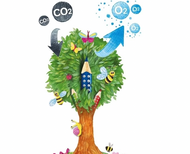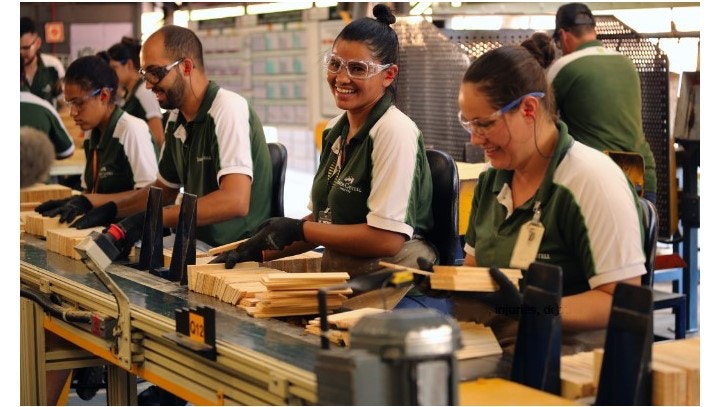FABER-CASTELL AND SUSTAINABILITY
Posted by Cass Art on 29th Mar 2021
As the world’s leading and oldest manufacturer of wood-cased pencils, producing more than two billion per year, Faber-Castell recognise that sustainability and responsible ecological actions have never been as pressing as they are today.
At Cass Art, we've taken a moment to run through the important steps Faber-Castell have taken in securing sustainable practices in pencil production worldwide - from using recycled materials in their packaging to embarking on community projects for children.
1. Ecological Practices
- Faber-Castell are pioneers in environmentally-friendly pencil production methods. In fact, securing a long-term source of timber was initiated into their company practices as far back as the 1980s. Today they sustainably manage 10,000 hectares of their own pine forests in Brazil, which provide the raw material for their pencils. Every year, around 300,000 seedlings are planted in their own forests.
- The company meets 82% of its global energy needs using renewable sources and offsets the carbon footprint of its production sites using their own forests. One third of these forests remain untouched and provide habitats for around 660 indigenous animal and plant species.
- All the wood used to produce its wood-cased pencils comes from certified sustainable sources that are 100% FSC or PEFC certified.
- Faber-Castell are working towards manufacturing an ever-growing proportion of their products and packaging from recycled materials.
Watch the video to see where the production of pencils start - the Brazilian forest which Faber-Castell have cultivated these forests for nearly 4 decades.
2. Social Practices
- Faber-Castell are committed to international social initiatives such as equal opportunities, equal treatment and the prohibition of child labour. In March 2000, they signed the Faber-Castell Social Charter - an international agreement setting out the company's voluntary commitment to ensure the employment and working conditions recommended by the International Labour Organization.

- Faber-Castell provides an extensive range of employee training and development courses, including occupational safety, language, IT and intercultural workshops. The company's mission statement 'we unleash creative potential' is promoted through all activities.
- Compliance with human rights is at the heart of Faber-Castell - with measures in place to report any violations of applicable law, human rights and working conditions.
3. Economic Practices
- Faber-Castell company is characterized by continuity of ownership, with an experienced management team and a stable employment base of about 8,000 employees worldwide. Represented in over 120 countries, they have their own production sites in ten countries as well as sales companies in 22 countries.
- In Brazil, Faber-Castell has worked closely with local communities for many years to allow the population to partake in the company's economic success.

4. Community Involvement
- The well-being of children has always played an important role for Faber-Castell, which is why Count Anton Wolfgang von Faber-Castell (8th generation) launched a children's fund foundation in 2001 - Graf von Faber-Castell Children's Fund Foundation. This charity has supported humanitarian children's aid projects in nurseries, schools, hospitals and orphanages.
- Proceeds from the sale of Eberhard Faber's Tabaluga products go directly to the Peter Maffay Foundation for Traumatised Children. The foundation aims to encourage children's imagination and creativity and help them overcome negative experiences.

- Faber-castell run an initiative called the 'Children of the World Project' in which they give children the opportunity to draw a representation of their own skin colour. Six skin colour pencils (pictured above) were developed with the help of make-up artists and can be mixed together to create every sae of colour. These pencils are a valuable, creative tool in the important phase of a child's self-discovery.






